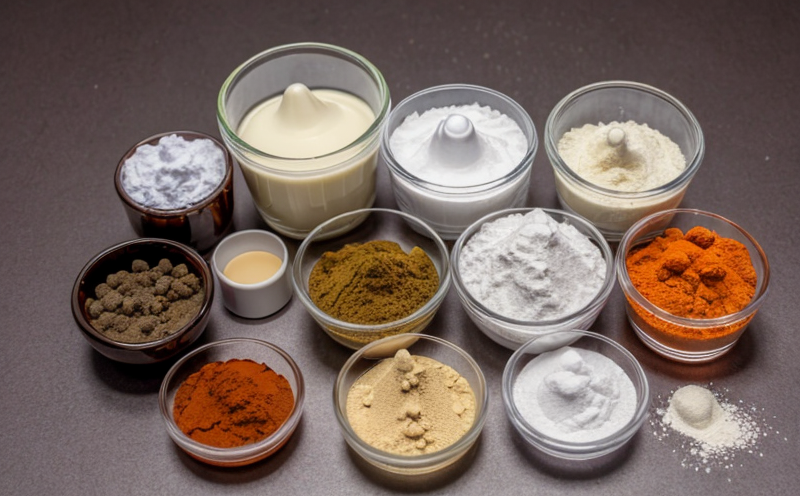Gelatin Bloom Strength Testing
The testing of gelatin bloom strength is a critical process in pharmaceutical excipients and formulation ingredients. Gelatin, derived from collagen found in animal bones and connective tissues, plays a vital role as an excipient in the production of various pharmaceutical products including capsules, tablets, and chewable medications.
Understanding the bloom strength ensures that the gelatin used in formulations meets both quality standards and regulatory requirements. Bloom strength measures the firmness or hardness of gelatin after setting, which directly impacts its suitability for use as an excipient. This property is crucial because it affects how easily the material can be processed into tablets or capsules and how well it retains its shape.
In pharmaceutical manufacturing, consistency in bloom strength across batches is paramount to ensure product quality and efficacy. Variations in bloom strength can lead to inconsistencies in dissolution rates, hardness, and overall drug release profiles. Therefore, regular and accurate testing of gelatin bloom strength is essential for maintaining the integrity of formulated products.
The testing method involves placing a known weight on top of a gelatin sample after it has been set but before it completely solidifies. The pressure applied determines the bloom value which reflects the gelatin's resistance to deformation under load. This parameter helps quality managers and compliance officers ensure that their raw materials meet predefined specifications.
Pharmaceutical manufacturers must adhere to international standards such as ISO 283-1, which provides detailed guidelines on how to perform this test accurately. By doing so, they can demonstrate compliance with Good Manufacturing Practices (GMP) and other relevant regulations ensuring the safety and efficacy of their final products.
For R&D engineers involved in developing new formulations or optimizing existing ones, understanding the relationship between gelatin bloom strength and other physical properties like elasticity and tensile strength is key. These relationships can influence not only processing ease but also the functionality within a specific dosage form such as enteric coating for extended release applications.
Procurement professionals responsible for selecting suppliers will benefit greatly from knowing about this test since it allows them to assess whether potential partners consistently deliver materials that meet required quality thresholds. Consistent application of bloom strength testing throughout supply chains enhances trust and reliability among stakeholders involved in producing high-quality pharmaceuticals.
Scope and Methodology
| Step | Description |
|---|---|
| 1. Preparation of Gelatin Sample | The gelatin sample should be prepared according to specified conditions, typically involving hydration and dissolution in water at a controlled temperature. |
| 2. Setting the Gelatin | The solution is poured into a standard mold and allowed to set under specified environmental conditions (temperature, humidity). |
| 3. Application of Load | A calibrated weight is placed on top of the gelatin sample while it remains in its setting state. |
| 4. Measurement of Bloom Value | The bloom value is calculated based on the deflection or depression caused by the applied load as per ISO 283-1. |
Benefits
- Ensures consistent quality across batches of gelatin excipients.
- Aids in meeting stringent regulatory requirements and GMP guidelines.
- Supports R&D efforts by providing reliable data on material performance.
- Facilitates better procurement decisions through objective evaluation criteria.
- Reduces waste due to poor quality raw materials leading to improved cost-effectiveness.
- Promotes safer and more effective pharmaceutical products for consumers.
Eurolab Advantages
At Eurolab, our expertise in gelatin bloom strength testing sets us apart from other laboratories. Our state-of-the-art facilities equipped with precise instruments ensure accurate and reproducible results every time.
We employ highly skilled technicians who are certified according to international standards. This allows us to offer comprehensive services that go beyond mere testing; we also provide consultative support to our clients, helping them interpret their data in the context of product development or compliance issues.
Our commitment to accuracy and reliability is further underscored by our adherence to ISO/IEC 17025 accreditation. This ensures that all aspects of our operations—from sample preparation to final analysis—are conducted following best practices recognized globally.
In addition, Eurolab offers fast turnaround times without compromising on the quality of our tests. Our clients can expect timely reports delivered directly to their desks via secure online portals or printed versions if preferred.





